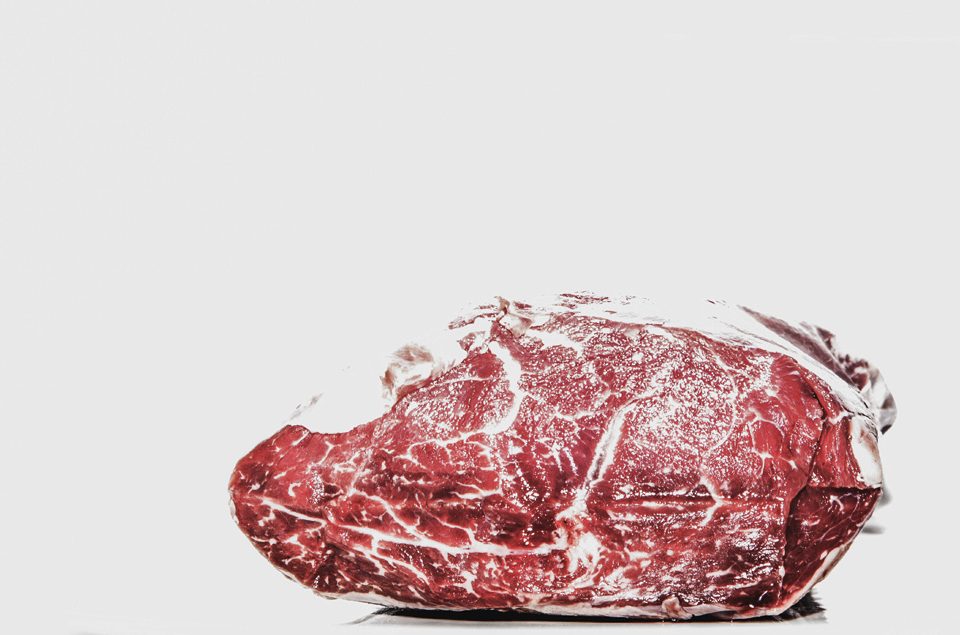Proponents of grain-free dog food say that this type of canine chow closely mimics the kind of diet that ancestral dogs have; hence, they are more suitable for dogs. They are also beneficial in a variety of ways. In this post, we’ll try to understand the merits of giving grain-free dog food to our pets by looking at the benefits that these kinds of food provide.
It can help reduce the incidence of food allergies in dogs.
 One of the most obvious benefits of grain-free dog food is that it can help reduce the incidence of food allergies in dogs. Before we dig deeper into this statement, let us first qualify the term ‘grain-free’.
One of the most obvious benefits of grain-free dog food is that it can help reduce the incidence of food allergies in dogs. Before we dig deeper into this statement, let us first qualify the term ‘grain-free’.
A lot of folks think that ‘grain-free’ dog food simply means that there should be no grain whatsoever. Unfortunately, there are a hundred different varieties of grains and many of these are not necessarily harmful to your pet. This is where the idea of gluten comes in. Gluten is a kind of protein that is found in certain kinds of grains. Since it is a protein it has the tendency to elicit an immunologic or more specifically an allergic response just like any other protein-rich foods can. Science has proven that animal proteins are more likely than not to cause allergies in dogs. However, when it comes to food allergies that result in stomach upsets, one of the most often cited culprits are cereal grains or grains that contain some form of protein.
While it is true that dogs are omnivores, their digestive tracts are that of a carnivore. This means that the gut of our favorite pet is simply shorter than other so-called omnivores. That being said, a shorter digestive tract means food needs to be digested really fast so that the nutrients it contains will be absorbed rapidly before the food is turned into a mulch and passed down through the rectum and anus as feces.
Plant foods, while nutritious, take time to digest. Some breeds of dogs are not really that efficient when it comes to digesting plant-based proteins. Since these proteins stay much longer in the digestive tract and that the gut is actually where 70% of the immune system cells reside, these partially digested proteins are exposed to immune system cells where they are ‘sensed’ as foreign particles, thus initiating an allergic reaction.
True, beef and chicken – two of the most common components of modern dog foods – are also allergenic. However, since they are animal-based proteins they are much easier to digest. Moreover, adding allergenic grains into the diet can only increase the chances of eliciting food allergies. As such, giving grain-free dog food can reduce the risk of developing canine food allergies.
It helps promote healthy digestion.
We mentioned above that a dog’s gut is shorter than true omnivores. When you give dogs foods that are filled with soy, corn, wheat, and other non-animal-based ingredients, there is a strong likelihood that this will put a strain on the digestive tract of dogs. True, these will still be digested and the nutrients absorbed. However, since it takes a lot longer for the dog’s digestive system to process these foods, they can cause problems in the dog’s gut.
Grain-free dog foods that contain digestion-enhancing ingredients such as sorghum, beet pulp, and barley as well as a host of phytonutrients are often a good way to promote healthier digestion in dogs.
It provides more nutrients that dogs need.
 Based on what we have been discussing so far we know that dogs require plenty of nutrients, especially proteins, for their wellbeing. While we don’t argue the fact that some plants do contain proteins, the amino acids contained in these plant-based proteins are incomplete. Compared to their animal counterparts, some of the essential amino acids necessary for optimum nervous, muscle, epithelial, and connective tissue development are grossly missing. Animal proteins will always contain all of the essential amino acids that dogs need to grow healthy and well. As such, if you can give your pooch all of the much-needed amino acids from animal proteins, do you still need the proteins from plants?
Based on what we have been discussing so far we know that dogs require plenty of nutrients, especially proteins, for their wellbeing. While we don’t argue the fact that some plants do contain proteins, the amino acids contained in these plant-based proteins are incomplete. Compared to their animal counterparts, some of the essential amino acids necessary for optimum nervous, muscle, epithelial, and connective tissue development are grossly missing. Animal proteins will always contain all of the essential amino acids that dogs need to grow healthy and well. As such, if you can give your pooch all of the much-needed amino acids from animal proteins, do you still need the proteins from plants?
Some will argue that plants contain vitamins and minerals as well as phytonutrients that have amazing antioxidant benefits. Do take note that what we said earlier is about the amino acid content of plant proteins. That is why the best dog foods in the market today are those that have an excellent combination of animal-based proteins and healthy fruits, vegetables, and wholesome grains. These are grains that do not necessarily have the potential to cause allergies as we have already presented above. These are not the type of grains that will try to supplement the protein requirements of dogs; they are included because of the other nutrients – vitamins, antioxidants, phytochemicals, and minerals – that they provide.
Grain-free dog food has more similarities to ancestral diets making it more dog-friendly.
While there really is no telling what kind of food the ancestors of our pooches ate in the wild before they were domesticated by man, scientists can only make educated guesses as to their kind of diet. Canids are not necessarily obligate carnivores unlike felines. That being said dogs can subsist on both animal and plant foods. However, as much as possible they require more of meats than plants owing to the unique structure of their digestive system. They may feed on plant food from time to time but this is not their principal diet. Grain-free dog food closely mimics this ancestral diet since it packs more animal-based ingredients than plants. Additionally, the plant ingredients are more from vegetables, wholesome grains, and fruits that pack nutrients.
It promotes optimum health of the dog’s skin and coat.
Promoting health skin in our dogs is a function of proteins as well as the nutrients that nourish every cell on the skin. Since hair is considered an organ of the integumentary system the nutrients that are delivered to the skin are also delivered to the hair, leading to an improvement in your dog’s skin and coat health. We already mentioned that grain-free dog food typically contains more of the healthier and more nutritious food items necessary for optimum health. Many of these contain antioxidants and other phytochemicals that promote optimum health for your dog’s coat and skin.
It supports the activities of your pooch.

Corn, soy, and wheat are excellent sources of carbohydrates. But they are not the only sources of fuel for your dog’s active lifestyle. Brown rice, potatoes, and sweet potatoes are also exceptional sources of carbohydrates, not to mention healthier for your pooch, too. Carbohydrates are important for energy as you don’t want your pooch to use up its protein reserves from its muscles. A great combination of carbs and proteins in your dog’s diet can, thus help support optimum wellness by providing the much-needed energy to sustain both the physical requirements of growth and the physiologic requirements of cellular development. Grain-free dog foods can help provide the necessary energy needs for dogs without creating trouble in its digestive system.
You may not believe in the value of grain-free dog food. But considering these benefits and what these mean for your pooch, it makes perfect sense to give your dog only the best and most appropriate nutrition for its own welfare.




